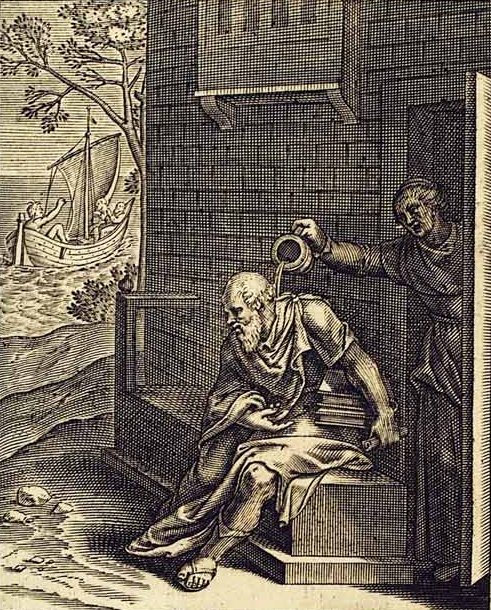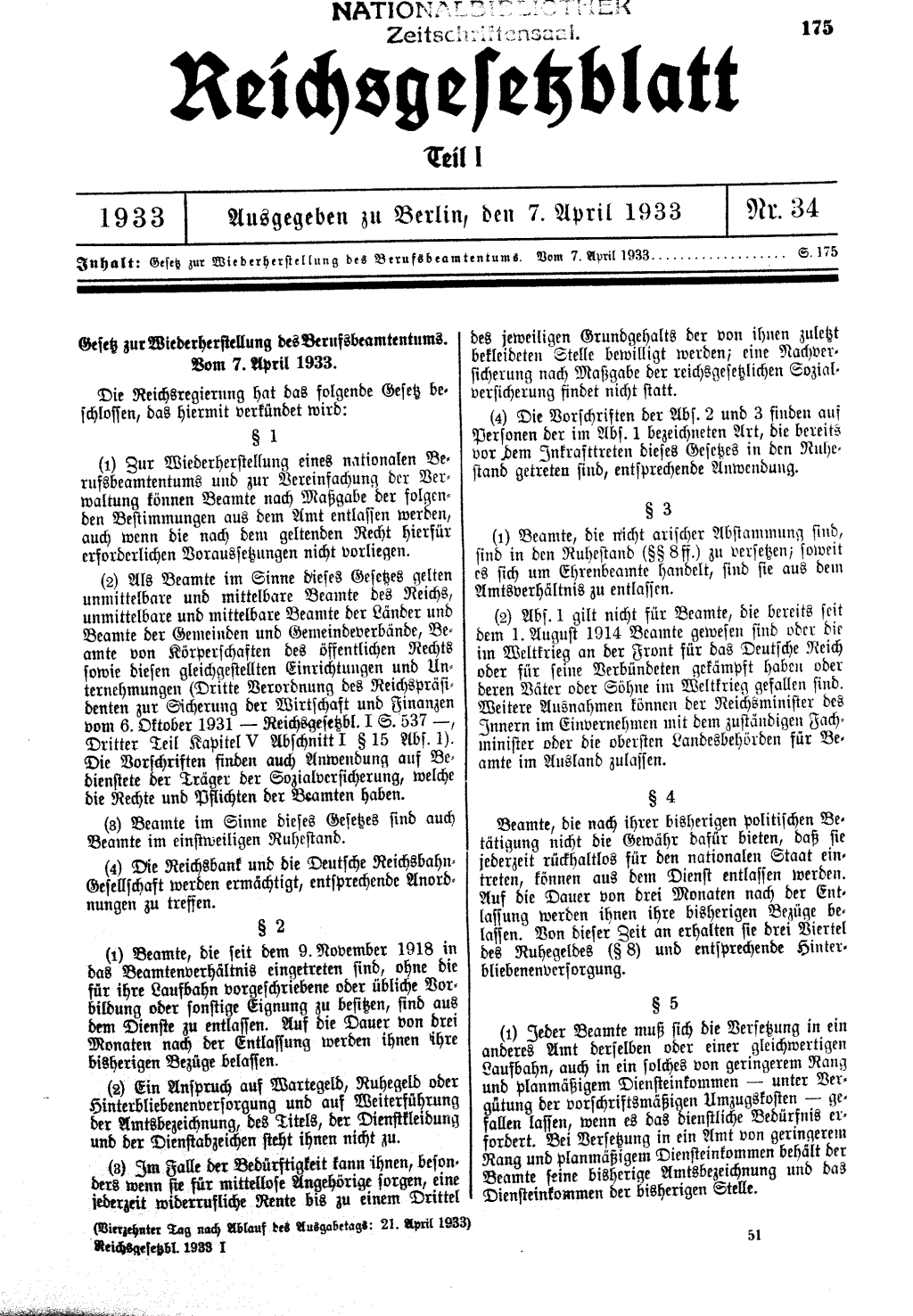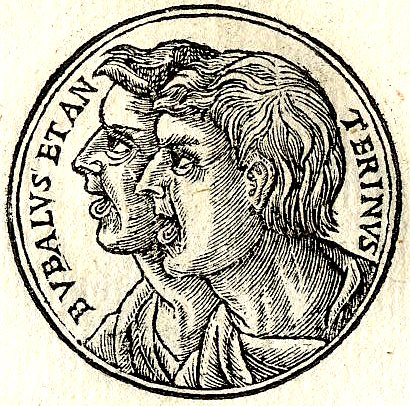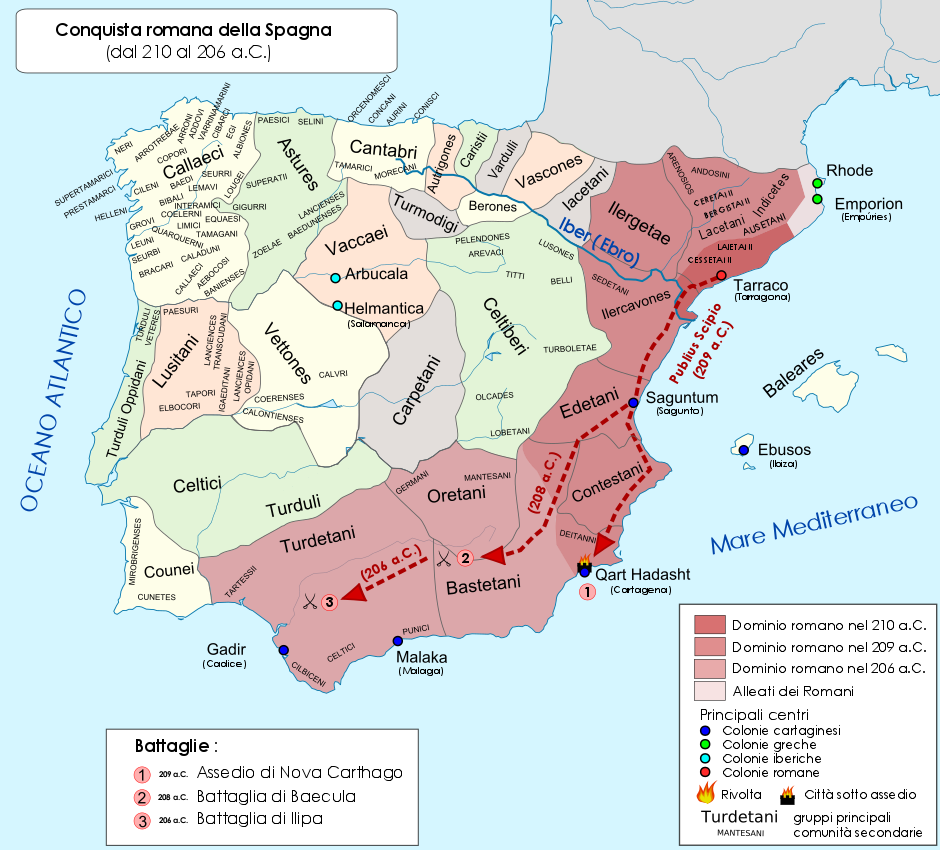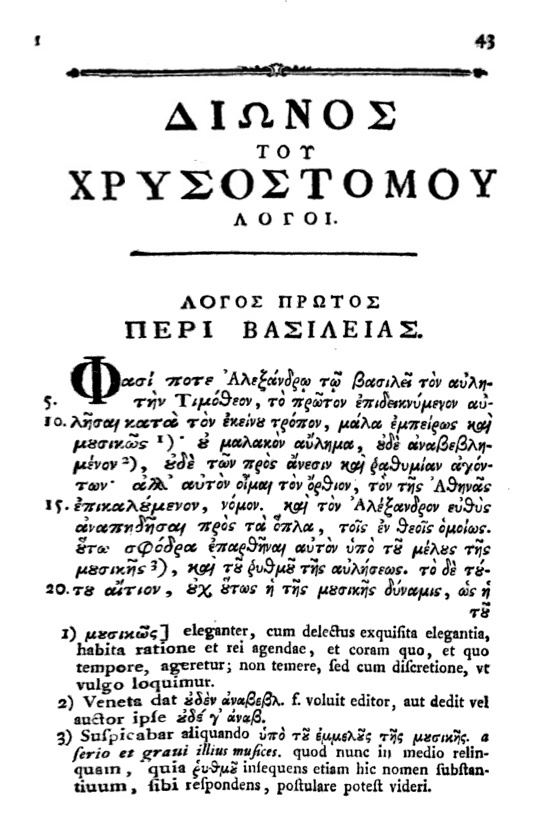|
Iambic Poetry
Iambus or iambic poetry was a genre of ancient Greek poetry that included but was not restricted to the iambic meter and whose origins modern scholars have traced to the cults of Demeter and Dionysus. The genre featured insulting and obscene language and sometimes it is referred to as "blame poetry". For Alexandrian editors, however, iambus signified any poetry of an informal kind that was intended to entertain, and it seems to have been performed on similar occasions as elegy even though lacking elegy's decorum. The Archaic Greek poets Archilochus, Semonides and Hipponax were among the most famous of its early exponents. The Alexandrian poet Callimachus composed "iambic" poems against contemporary scholars, which were collected in an edition of about a thousand lines, of which fragments of thirteen poems survive. He in turn influenced Roman poets such as Catullus, who composed satirical epigrams that popularized Hipponax's choliamb. Horace's '' Epodes'' on the other hand were ... [...More Info...] [...Related Items...] OR: [Wikipedia] [Google] [Baidu] |
Socrates And Xanthippe
Socrates (; ; – 399 BC) was a Greek philosopher from Athens who is credited as the founder of Western philosophy and as among the first moral philosophers of the ethical tradition of thought. An enigmatic figure, Socrates authored no texts and is known mainly through the posthumous accounts of classical writers, particularly his students Plato and Xenophon. These accounts are written as dialogues, in which Socrates and his interlocutors examine a subject in the style of question and answer; they gave rise to the Socratic dialogue literary genre. Contradictory accounts of Socrates make a reconstruction of his philosophy nearly impossible, a situation known as the Socratic problem. Socrates was a polarizing figure in Athenian society. In 399 BC, he was accused of impiety and corrupting the youth. After a trial that lasted a day, he was sentenced to death. He spent his last day in prison, refusing offers to help him escape. Plato's dialogues are among the mos ... [...More Info...] [...Related Items...] OR: [Wikipedia] [Google] [Baidu] |
Paros
Paros (; ; ) is a Greek island in the central Aegean Sea. Part of the Cyclades island group, it lies to the west of Naxos (island), Naxos, from which it is separated by a channel about wide. It lies approximately south-east of Piraeus. The Communities and Municipalities of Greece, Municipality of Paros includes numerous uninhabited offshore islets totaling of land. Its nearest neighbor is the municipality of Antiparos, which lies to its southwest. In ancient Greece, the city-state of Paros (city), Paros was located on the island. Historically, Paros was known for its fine white marble, which gave rise to the term ''Parian'' to describe marble or china (porcelain), china of similar qualities. Today, working marble quarry, quarries and mines (as well as abandoned ones) can be found on the island, but Paros is primarily known as a popular tourist spot. Geography Paros' geographic coordinates are 37° N. latitude, and 25° 10' E. longitude. The area is . Its greatest length from ... [...More Info...] [...Related Items...] OR: [Wikipedia] [Google] [Baidu] |
Eduard Fraenkel
Eduard David Mortier Fraenkel FBA () was a German classical scholar who served as the Corpus Christi Professor of Latin at the University of Oxford from 1935 until 1953. Born to a family of assimilated Jews in the German Empire, he studied Classics at the universities of Berlin and Göttingen. In 1934, antisemitic legislation introduced by the Nazi Party forced him to seek refuge in the United Kingdom where he eventually settled at Corpus Christi College. Fraenkel established his academic reputation with the publication of a monograph on the Roman comedian Plautus, ('Plautine Elements in Plautus', 1922). The book was developed from his doctoral thesis and changed the study of Roman comedy by asserting that Plautus was a more innovative playwright than previously thought. In 1950, he published a three-volume commentary on the ''Agamemnon'' by the Greek playwright Aeschylus which has been described by the classicist H. J. Rose as "perhaps the most erudite that any Greek play ... [...More Info...] [...Related Items...] OR: [Wikipedia] [Google] [Baidu] |
Bupalus
Bupalus () and Athenis (), were sons of Archermus, and members of the celebrated school of sculpture in marble which flourished in Chios in the 6th century BC. They were contemporaries of the poet Hipponax, whom they were said to have caricatured. Their works consisted almost entirely of draped female figures, Artemis, Fortune, The Graces, when the Chian school has been well called a school of Madonnas. Augustus brought many of the works of Bupalus and Athenis to Rome, and placed them on the gable of the temple of Apollo Palatinus. Bupalus supposedly committed suicide out of shame after Hipponax wrote caustic satirical poetry about him to revenge himself on Bupalus for his refusal to let Hipponax marry his daughter and for his caricature of Hipponax. Aristophanes refers to Bupalus in the ''Lysistrata''. When the Chorus of Men encounter the Chorus of Women near the north-western edge of the Acropolis they ridicule the women, "I warrant, now, if twice or thrice we slap their faces ... [...More Info...] [...Related Items...] OR: [Wikipedia] [Google] [Baidu] |
Neoteric
The Neoterikoi (Ancient Greek: '; Latin: ', "new poets") or Neoterics were a series of avant-garde Latin poets who wrote in the 1st century BCE. Neoteric poets deliberately turned away from classical Homeric epic poetry. Rather than focusing on the feats of ancient heroes and gods, they propagated a new style of poetry through stories that operated on a smaller scale in regard to themes and setting. Although the poems of the Neoterics may seem to address superficial subjects, many scholars view their work as subtle and accomplished works of art. Neoteric poetry has frequently been compared to the Modernist movement of the late 19th through the 20th century, as well as the Imagist movement. Neoterics Influenced by the Greek Hellenistic poets, the Neoterics rejected traditional social and literary norms. Their poetry is characterized by tight construction, a playful use of genre, punning, and complex allusions. The most significant surviving Neoteric works are those of Catullus. H ... [...More Info...] [...Related Items...] OR: [Wikipedia] [Google] [Baidu] |
Scipio Africanus
Publius Cornelius Scipio Africanus (, , ; 236/235–) was a Roman general and statesman who was one of the main architects of Rome's victory against Ancient Carthage, Carthage in the Second Punic War. Often regarded as one of the greatest military commanders and strategists of all time, his greatest military achievement was the defeat of Hannibal at the Battle of Zama in 202 BC. This victory in Africa earned him the honorific epithet ''Africanus'', literally meaning 'the African', but meant to be understood as a conqueror of Africa (Roman province), Africa. Scipio's conquest of Carthaginian Iberia culminated in the Battle of Ilipa in 206 BC against Hannibal's brother Mago Barca. Although considered a hero by the Roman people, primarily for his victories against Carthage, Scipio had many opponents, especially Cato the Elder, who hated him deeply. In 187 BC, he was tried in a show trial alongside his brother for bribes they supposedly received from the Seleucid king Antiochus III ... [...More Info...] [...Related Items...] OR: [Wikipedia] [Google] [Baidu] |
Plutarch
Plutarch (; , ''Ploútarchos'', ; – 120s) was a Greek Middle Platonist philosopher, historian, biographer, essayist, and priest at the Temple of Apollo (Delphi), Temple of Apollo in Delphi. He is known primarily for his ''Parallel Lives'', a series of biographies of illustrious Greeks and Romans, and ''Moralia'', a collection of essays and speeches. Upon becoming a Roman citizen, he was possibly named Lucius Mestrius Plutarchus (). Family Plutarch was born to a prominent family in the small town of Chaeronea, about east of Delphi, in the Greek region of Boeotia. His family was long established in the town; his father was named Autobulus and his grandfather was named Lamprias. His brothers, Timon and Lamprias, are frequently mentioned in his essays and dialogues, which speak of Timon in particular in the most affectionate terms. Studies and life Plutarch studied mathematics and philosophy in Athens under Ammonius of Athens, Ammonius from AD 66 to 67. He attended th ... [...More Info...] [...Related Items...] OR: [Wikipedia] [Google] [Baidu] |
Cato The Elder
Marcus Porcius Cato (, ; 234–149 BC), also known as Cato the Censor (), the Elder and the Wise, was a Roman soldier, Roman Senate, senator, and Roman historiography, historian known for his conservatism and opposition to Hellenization. He was the first to history of history#Roman world, write history in Latin with his ''Origines'', a now fragmentary work on the history of Rome. His work ''De agri cultura'', a treatise on agriculture, rituals, and recipes, is the oldest extant prose written in the Latin language. His epithet "Elder" distinguishes him from his great-grandson Senator Cato the Younger, who opposed Julius Caesar. He came from an ancient Plebs, plebeian family who were noted for their Roman army, military service. Like his forefathers, Cato was devoted to Roman agriculture, agriculture when not serving in the army. Having attracted the attention of Lucius Valerius Flaccus (consul 195 BC), Lucius Valerius Flaccus, he was brought to Rome. He was successively milita ... [...More Info...] [...Related Items...] OR: [Wikipedia] [Google] [Baidu] |
Dio Chrysostom
Dio Chrysostom (; ''Dion Chrysostomos''), Dio of Prusa or Cocceianus Dio (c. 40 – c. 115 AD), was a Greek orator, writer, philosopher and historian of the Roman Empire in the 1st century AD. Eighty of his ''Discourses'' (or ''Orations''; ) are extant, as well as a few letters, a mock essay ''Encomium on Hair'', and a few other fragments. His sobriquet ''Chrysostom'' comes from the Greek Greek may refer to: Anything of, from, or related to Greece, a country in Southern Europe: *Greeks, an ethnic group *Greek language, a branch of the Indo-European language family **Proto-Greek language, the assumed last common ancestor of all kno ... , which literally means "golden-mouthed". Life He was born at Prusa (Bithynia), Prusa (now Bursa), in the Roman province of Bithynia (now part of northwestern Turkey). His father, Pasicrates, seems to have bestowed great care on his son Dio's education. At first he lived in Prusa, where he held important offices, composed speeches and other rheto ... [...More Info...] [...Related Items...] OR: [Wikipedia] [Google] [Baidu] |
Pindar
Pindar (; ; ; ) was an Greek lyric, Ancient Greek lyric poet from Thebes, Greece, Thebes. Of the Western canon, canonical nine lyric poets of ancient Greece, his work is the best preserved. Quintilian wrote, "Of the nine lyric poets, Pindar is by far the greatest, in virtue of his inspired magnificence, the beauty of his thoughts and figures, the rich exuberance of his language and matter, and his rolling flood of eloquence, characteristics which, as Horace rightly held, make him inimitable." His poems can also, however, seem difficult and even peculiar. The Athenian comic playwright Eupolis once remarked that they "are already reduced to silence by the disinclination of the multitude for elegant learning". Some scholars in the modern age also found his poetry perplexing, at least until the 1896 discovery of some poems by his rival Bacchylides; comparisons of their work showed that many of Pindar's idiosyncrasies are typical of archaic genres rather than of only the poet himsel ... [...More Info...] [...Related Items...] OR: [Wikipedia] [Google] [Baidu] |
Iambic Trimeter
The Iambic trimeter, in classical Greek and Latin poetry, is a meter of poetry consisting of three iambic metra (each of two feet) per line. In English poetry, it refers to a meter with three iambic feet. In ancient Greek poetry and Latin poetry, an iambic trimeter is a quantitative meter, in which a line consists of three iambic ''metra''. Each '' metron'' consists of the pattern , x – u – , , where "–" represents a long syllable, "u" a short one, and "x" an ''anceps'' (either long or short). Resolution was common, especially in the first two metra of the line, so that any long or ''anceps'' syllable except the last could be replaced by two short syllables (see for example Euripides#Chronology), making a total of 13 or more syllables. It is the most common meter used for the spoken parts (as opposed to the sung parts) of Ancient Greek tragedy, comedy, and satyr plays. It is also common in iambus or 'blame poetry', although it is not the only meter for that genre. ... [...More Info...] [...Related Items...] OR: [Wikipedia] [Google] [Baidu] |
Symposium
In Ancient Greece, the symposium (, ''sympósion'', from συμπίνειν, ''sympínein'', 'to drink together') was the part of a banquet that took place after the meal, when drinking for pleasure was accompanied by music, dancing, recitals, or conversation.Peter Garnsey, ''Food and Society in Classical Antiquity'' (Cambridge University Press, 1999), p. 13online Sara Elise Phang, ''Roman Military Service: Ideologies of Discipline in the Late Republic and Early Principate'' (Cambridge University Press, 2008), pp. 263–264. Literary works that describe or take place at a symposium include two Socratic dialogues, Plato's '' Symposium'' and Xenophon's '' Symposium'', as well as a number of Greek poems, such as the elegies of Theognis of Megara. Symposia are depicted in Greek and Etruscan art that shows similar scenes. In modern usage, it has come to mean an academic conference or meeting, such as a scientific conference. The Latin equivalent of a Greek symposium in Roman s ... [...More Info...] [...Related Items...] OR: [Wikipedia] [Google] [Baidu] |
